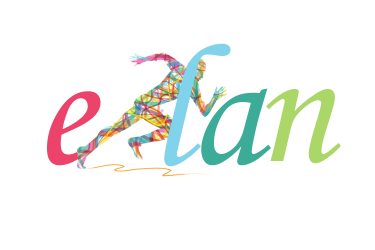Spelling-pronunciation connection as you might have realized if you ever studied English is irritating and exasperating. It’s messy, chaotic and nightmarish for many English learners. “NO FRIGGIN’ RULES” most of you complain right? And you’re right. Well, almost right. There are some rules, but more exceptions. This article is going to present some spelling-pronunciation rules for vowels though not for consonants. Now, how does this spelling-pronunciation relationship affect you, the learner? Well, duhh! It obviously affects your spelling and pronunciation. What that means is that it impacts your writing and speaking (but also reading and listening) dramatically.
How does it affect writing?
Think about it. As you sit down and attempt to write, unless you have a superhuman ability to remember the shape of hundreds and thousands of English words (assuming you have that word in your vocabulary), you are going to try to work out the spelling of a word by sounding it out (pronouncing it). With so many exceptions and a few rules, you are very likely to choose the wrong letters or combination of letters to represent the sound. For example, you’re thinking to write the word “pray”, and you’re sounding it out as p-r-eɪ but then you soon realize that you’re faced with a few options to spell vowel /eɪ/ right? Vowel /eɪ/ can be spelled as “a” as in [late], “ey” as in [prey], “ai” as in [bait], and of course “ay” as in [pray].
How does it affect pronunciation?
Now, you have another hurdle. You do remember the shape of the word, you know the spelling! Let’s use the same example. You want to say the word “pray” and you do remember how it’s written but you also heard letter [a] pronounced as /æ/ in [last], as /eɪ/ in [date], as /ɑː/ in [awe], and even as /e:/ in [aeroplane]! Which one would you go for? You would probably try to recall other words with similar spellings such as [say] and [day] which could be more familiar, and that’s great but unfortunately, oftentimes, you don’t get that lucky. The result is a mess. Many languages like Spanish, Italian and Portuguese are spoken as written. What you see is what you get, so to speak. No gamble.
The 7 spelling-pronunciation rules for vowels
Assuming that you know what vowels are and you have some idea of what that’s all about, let me tell you what you’re about to learn from this article, just in case for a strange reason, the title wasn’t clear enough for you. You’re going to learn 7 spelling-pronunciation rules. Let me rephrase! You’re going to learn 7 rules to help you figure out how to say a word just by looking at spelling.
Here we go.
Rule 1-One vowel letter in one-syllable words ending with a consonant letter(s)
Those vowels are normally short and very often pronounced as follows:
| letter a | letter u | letter i | letter e |
|---|---|---|---|
| act=ækt fan=fæn ant=ænt cab=kæb App=æp |
fun=fʌn buck=bʌk bluff=blʌf cut=kʌt sum=sʌm |
if=ɪf mint=mɪnt pick=pɪk inn=ɪn big=bɪg |
end=end quest=kwest kept=kept ten=ten gem=dʒem |
Rule 2-One vowel alone at the end of a 1-word syllable
Those vowels are usually long.
He=hi:
She=ʃi:
no=noʊ
Rule 3-Two vowel-letters one of which is e at the end of a 1-syllable word
In that case, the e is often silent and the first vowel is long.
ate=eɪt
date=deɪt
side=saɪd
pole=poʊl
Rule 4-Two vowel-letters next to each other in 1-syllable words
Those are usually long vowels.
main=meɪn
tea=ti:
feet=fi:t
Rule 5-1 vowel-letter followed by 2 identical consonants
Those are usually short vowels
winner=wɪnɚ
upper=ʌpɚ
muffin=mʌfən
full=fʊl
Rule 6-2 identical vowels in a row (often [ee] and sometimes oo)
Those are long vowels
sheet=ʃiːt
meet=miːt
noodle=nuːdəl
fool=fuːl
Rule 7-The double [oo] vowel
That one makes different sounds (sorry), but generally it’s a long vowel before a voiced consonant and short before a voiceless one but as you will see, there are plenty of exceptions
room=ruːm
tool=tuːᵊl
pool=puːᵊl
moon=muːn
book=bʊk
hook=hʊk
foot=fʊt (but not boot=buːt, shoot=ʃuːt)
door=dɔːr
blood=blʌd
I know I’ve just made your life harder and you must loathe me now, but hey, at least, you know something you didn’t know before right? That’s the idea.
Do not hesitate to ask questions! Do not be SHY! Go ahead. Leave your comment and let us know if you know of any other vowel rules!

Leave a Reply